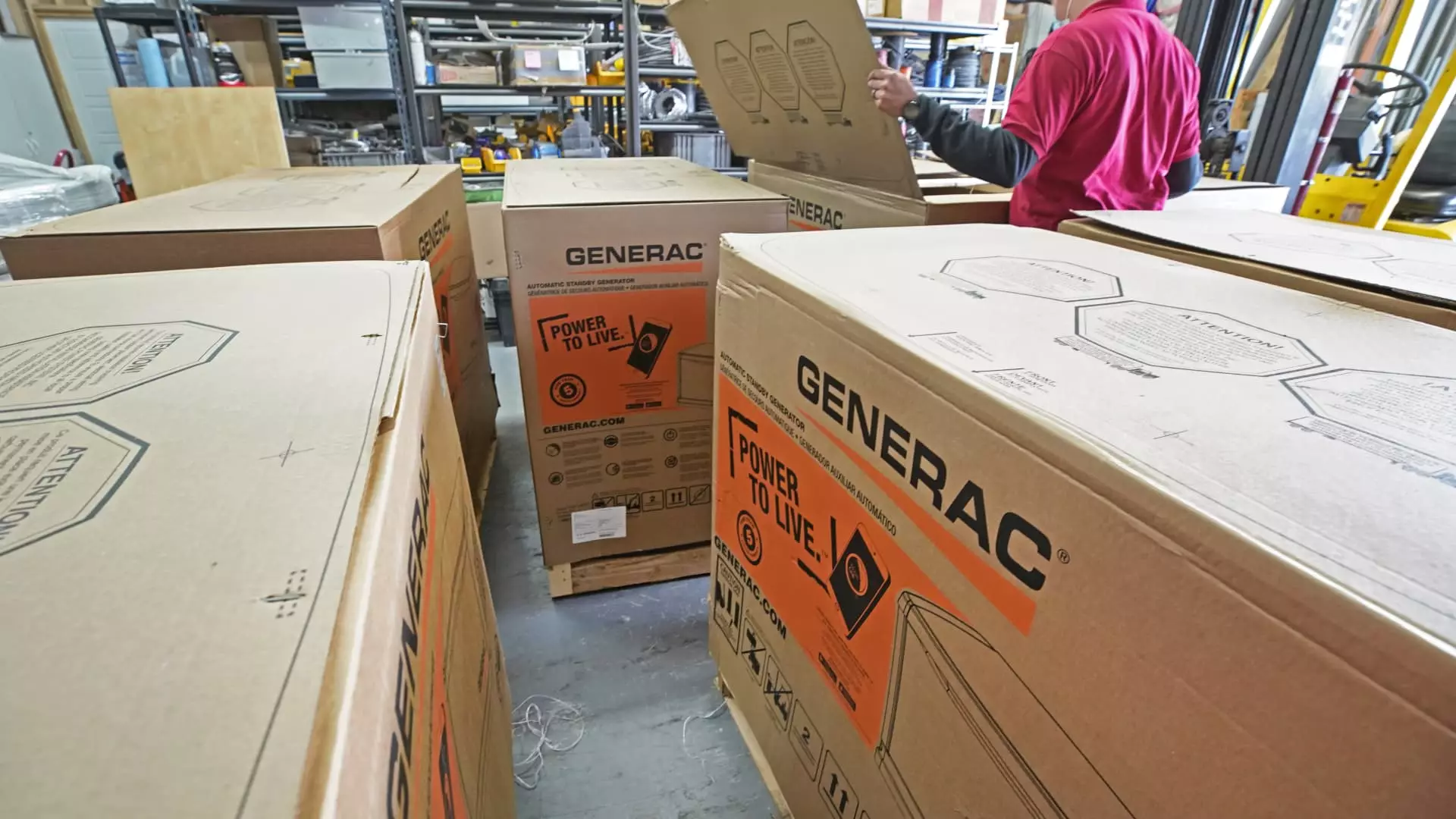As the world enters yet another oppressive summer, marked by harrowing heatwaves and ominous storm fronts, investors are increasingly turning their gaze towards companies like Generac. This surge in stock prices is not merely a reaction to market dynamics but a stark indicator of a changing climate that is wreaking havoc on our already fragile electricity grid. We are not just looking at a seasonal fluctuation or typical economic trends; we are staring down the barrel of a reality where catastrophic climate change and outdated infrastructure combine to create an urgent need for backup power solutions.
The compounded effect of global warming is no longer confined to abstruse discussions among scientists; it is front and center in boardrooms and investor chats. With 130 million Americans under extreme heat advisories and a significant percentage of the population experiencing power outages, the urgency for reliable energy sources has never been more pronounced. This is a reality to consider before dismissing Generac’s soaring stock as a simple reflection of market speculation.
The Surge of Generac: A Profitable Panic
Like clockwork, the financial machinations of the stock market often respond to crises with opportunism. Generac’s stock, surging nearly 12% this week alone, paints a picture of a company that is at the intersection of climate-induced disaster and sheer market luck. Investors, spurred by an impending hurricane season that promises 13 to 19 named storms and possible major hurricanes, are essentially gambling on devastation. Capitalism’s inherent drive for profit often edges toward a contemptible opportunism, wherein the suffering of the populace becomes fodder for financial gain.
Let’s not gloss over the fact that Generac’s rising stock value is a reflection of America’s troubling energy landscape. Their backup generators are sought after, not just as a luxury but increasingly as a necessity. This presents a dual-edged sword: while economic opportunity flourishes in the face of adversity, human resilience showcases its weaknesses as our infrastructure crumbles amidst rising temperatures and increasing tempest fury.
Utility Stocks and the Coming Power Crunch
In tandem with Generac, a host of utility stocks are projected to benefit from this burgeoning energy crisis. While this might seem like a boon for utility companies, it is essential to scrutinize the systemic issues that allow such a dramatic situation to arise. We know that the aging power grid is under more strain than ever, and the increasing electrical load, pegged to grow at a 2.5% rate according to Bank of America, signifies a looming power crunch.
Amidst these conditions, companies like Trane Technologies, which manufacture cooling systems critical for data centers, garner attention. However, it’s crucial to question whether these companies are merely capitalizing on market dynamics or genuinely contributing to sustainable solutions. The growth in data centers and overall energy demand needs to be met with innovative strategies if we are to mitigate the chaos we find ourselves in.
Moreover, while some analysts express a preference for utility stocks as laggards with growth potential, it’s vital to remember that these are the same institutions inherently tied to infrastructures that need radical overhaul. Choosing the right stocks amidst a landscape assured to become more volatile should not come at the expense of abandoning the pursuit of meaningful changes in energy policy and infrastructure.
The Ethical Conundrum
Let’s be frank: the race to profit from disaster raises ethical questions that cannot be ignored. As climate change continues its inexorable march, dominating headlines and reshaping entire industries, the rhetoric of profitability versus moral obligation is more crucial than ever. It is easy to herald companies like Generac for thriving amidst turmoil, but we must ask ourselves—what does this say about our society’s values?
Are we comfortable living in a world where the financial success of a company depends on the destabilization of basic needs like electricity? One could argue that we should shift our focus toward fostering sectors aimed at alleviating the root causes of climate change, rather than banking on the companies that are reaping the benefits of ongoing calamity. In the end, the symbiosis between climate chaos and market dynamics creates an unsettling narrative, one that necessitates deeper scrutiny as it reflects not just on individual companies but the broader ethos of our economy and its priorities.

